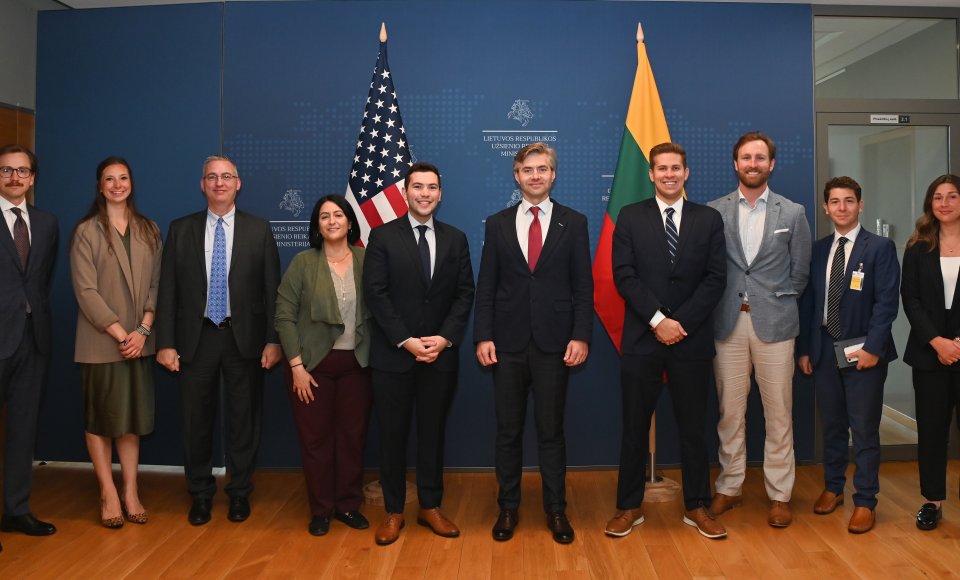By Daspina Hasanova
BAKU, Azerbaijan, July 1. On June 30, a
delegation of U.S. Congressional employees who support members of
the Senate and House of Representatives in their official duties
visited Lithuania for a series of strategic-level discussions with
Lithuanian institutions, Trend reports.
The group met with representatives of the Ministry of Foreign
Affairs to discuss regional security dynamics, transatlantic
cooperation, the outcomes of the recent NATO Summit in The Hague,
and bilateral relations between the United States and
Foreign Minister Kęstutis Budrys welcomed the delegation at the
Ministry of Foreign Affairs and expressed gratitude for the United
States’ longstanding support for Baltic security. He highlighted
the continued deployment of U.S. troops in Lithuania and the
support provided through the Baltic Security Initiative, which
strengthens military infrastructure and defense readiness across
the region.
Discussions at the ministry addressed hybrid threats, maritime
security issues—including risks posed by so-called “shadow fleet”
activities—and the importance of maintaining international pressure
to uphold global security standards. Lithuanian diplomats
emphasized the country’s deep appreciation for its strategic
partnership with the U.S., calling Lithuania “America’s best friend
in Europe.”
Delegation members were also briefed on Lithuania’s defense
commitments and investment in military capabilities. Lithuanian
officials underlined that the U.S. presence in the region remains a
cornerstone of deterrence and stability.
In addition to the Foreign Ministry, the U.S. delegation held
meetings with officials from the Ministry of National Defence, the
Office of the President, and members of the Seimas (Parliament).
They also visited the Geopolitics and Security Studies Center and
the Pabradė Training Area, where they toured infrastructure
projects under construction and met with U.S. troops stationed at
Camp Herkus.
The Congressional staff visit is held twice a year and serves as
an opportunity to deepen understanding of Lithuania’s security
environment and explore new avenues for bilateral cooperation.
Topics typically include defense, energy, economic resilience,
cybersecurity, and regional affairs. Following their visit to
Lithuania, the delegation is scheduled to travel to other Baltic
